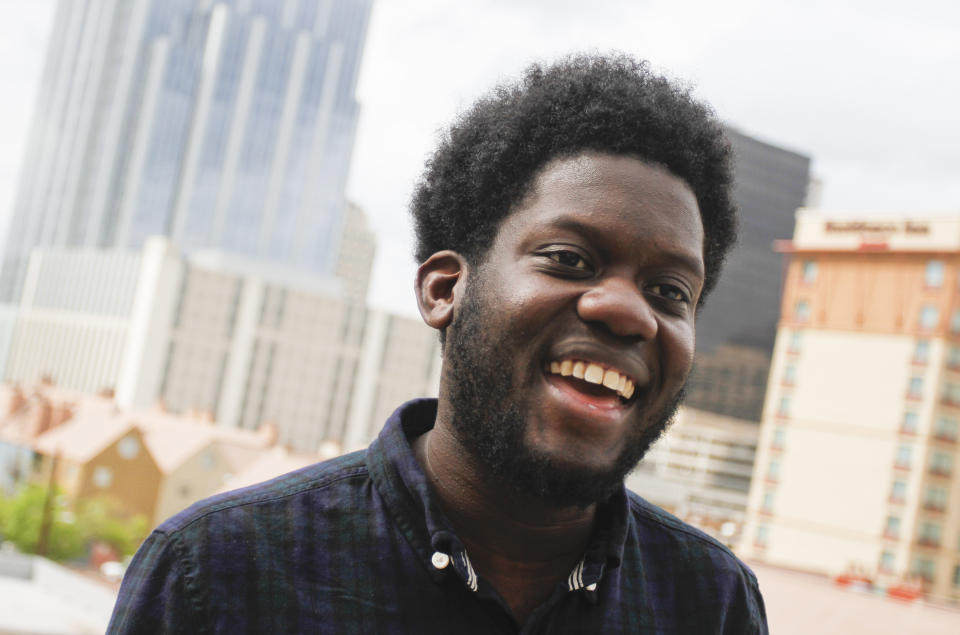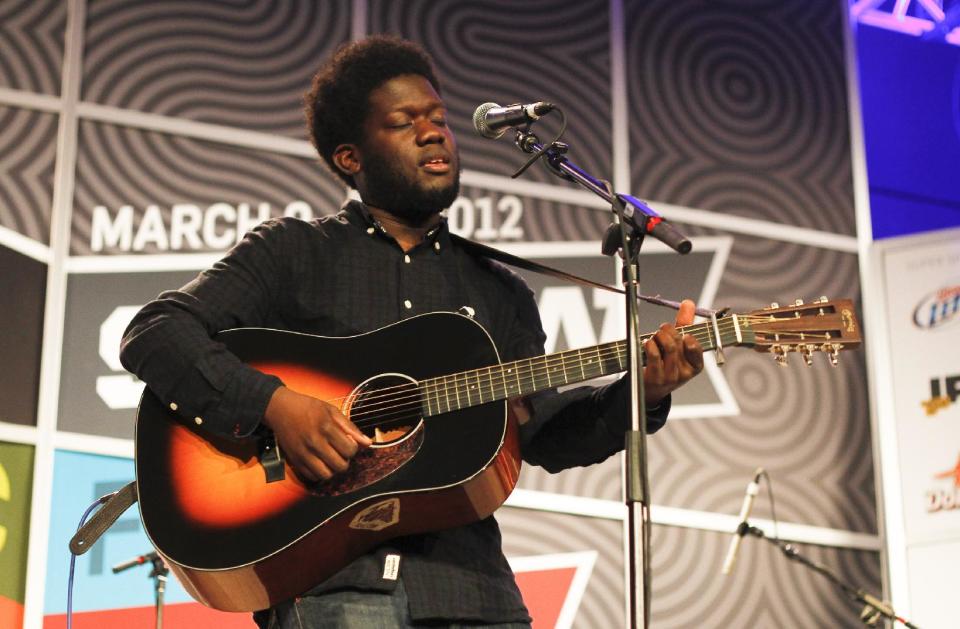Kiwanuka steps on biggest stage yet at Bonnaroo
NASHVILLE, Tenn. (AP) — Michael Kiwanuka didn't trust his voice.
For the increasingly large crowd of music fans familiar with the pure, soulful sound of the British singer's ageless voice, this is probably hard to believe. Yet it's true. Kiwanuka thought he was a guitar player and nothing more.
"The people who were big when I was in my mid-teens were like Usher, and Justin Timberlake started coming out," Kiwanuka said in his sing-song lilt. "And there's R&B singers who are amazing. And I would sing and it would sound not really like that at all ... so people just found it weird. When I listened to it back on speakers for demos and stuff, it just sounded like nothing else that was around."
We can all be thankful for that. Kiwanuka eventually found confidence in his voice, and as he prepares to play his first Bonnaroo Music & Arts Festival, he arrives with plenty of advance hype, joining top acts like Radiohead, the Red Hot Chili Peppers, Phish, the Beach Boys and more on the bill in Manchester, Tenn.
Kiwanuka was voted in BBC's Best of Sound 2012 as Britain's top act to watch this year. Long before his debut album "Home Again" went gold in his home country, the 25-year-old was already earning attention on both sides of the Atlantic with a series of EPs that showcased his songwriting ability, his understated guitar playing and that voice, which recalls soul singers like Otis Redding and Bill Withers.
"I think obviously the first thing that stands out is his voice," The Black Keys guitarist Dan Auerbach said. "It's pretty amazing. It's got a lot of character."
Auerbach was so taken with Kiwanuka's vibe, he reached out and set up a recording session in London on a rare day off. The resulting song, the slow-grooving "Lasan," made the U.S. version of the album, which was recently released digitally and will be available as a physical release in the United States on July 17.
"He sent me just this little demo he had with just his guitar and his voice," Auerbach said. "And we decided we'd just go in the studio and record it. ... It was this weird synchronicity thing. We came up with the arrangement on the spot. It was nice."
Things didn't always come so easily for Kiwanuka, a child of Ugandan parents who grew up in north London. In fact, he admits to struggling some in his first recording sessions with producer Paul Butler (also lead singer of The Bees).
"The longest studio session I had with him was two weeks, and I was like, 'Great, I've got two weeks to come up with something solid if anything else,'" Kiwanuka said during a recent interview at the South By Southwest Music Conference in Austin, Texas. "So we got there and all the songs I had tanked, they just didn't work in the studio. I felt the session kind of falling apart. I had one day off to do what I wanted and I just stayed in my room."
It wasn't until he came up with his breakthrough song "Tell Me a Tale" that things really got rolling. He emerged with not only words and chords for "Tale," but also a Fela-esque retro groove that propelled the song in an exciting way and seemed also to break down the barriers he faced in the studio. Butler could see Kiwanuka's confidence growing daily.
"The thing about 'Tell Me a Tale,' it kept its rawness," Butler said in a phone interview. "It has the grit and the dirt in it. It just has like a good intention with it that wasn't necessarily what he was playing. I hope he keeps that for future recordings, the rawness. Also he's blessed with this amazing African rhythm. You can't really learn what he's doing. It's a lovely thing that first came out in his guitar playing. You've either got it or you haven't."
Although Kiwanauka's sound is not typical of pop, his music has garnered him surprising mainstream support in Britain.
"He got a lot of radio play on (BBC) Radio 1," Butler said. "It was going in between Jessie J and all the big pop stars, and then 'Home Again' would come on, this really mellow, gritty, earthy sound, and a lot of people really loved it."
Which means after years of looking for his place, Kiwanuka has found it.
"When you're a teenager all you want to do is fit in," Kiwanuka said. "You don't want to be unique, which is bad and wrong. Actually that's what's so cool about life — everyone's different."
___
Online:
http://www.michaelkiwanuka.com
http://www.bonnaroo.com
___
Follow Entertainment Writer Chris Talbott at www.twitter.com/Chris_Talbott.



